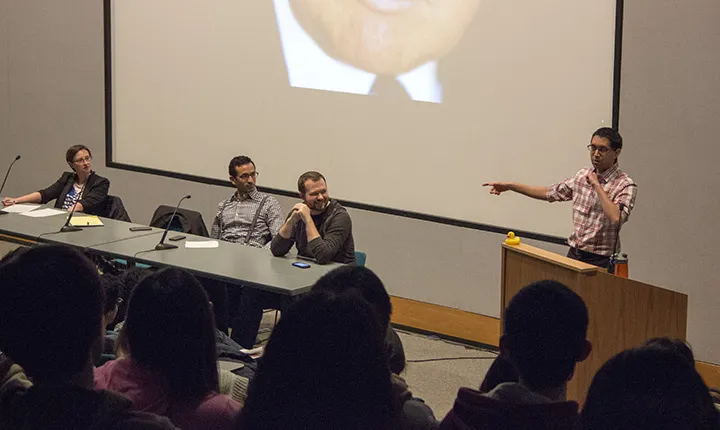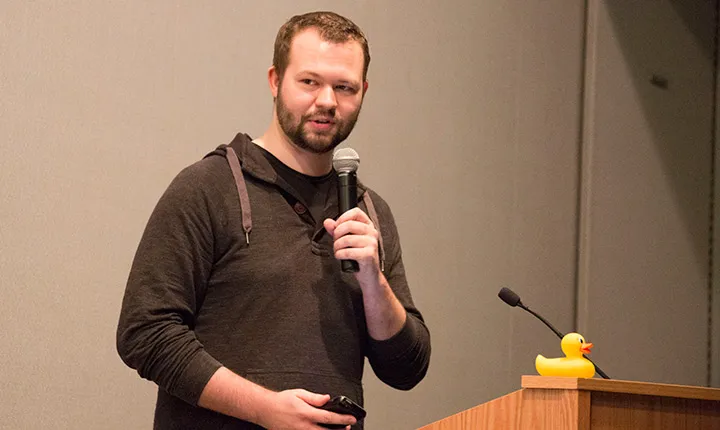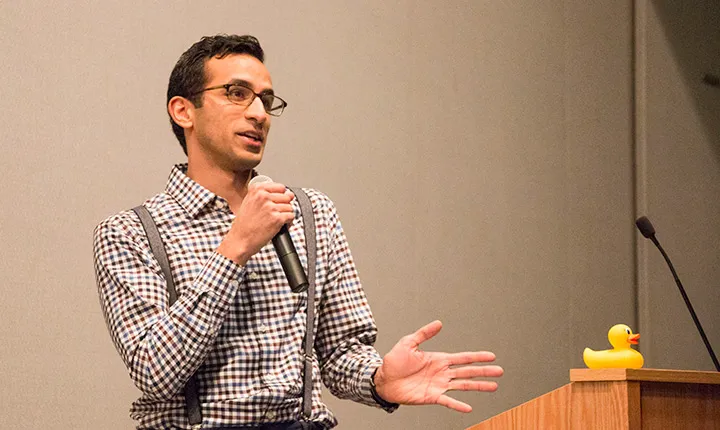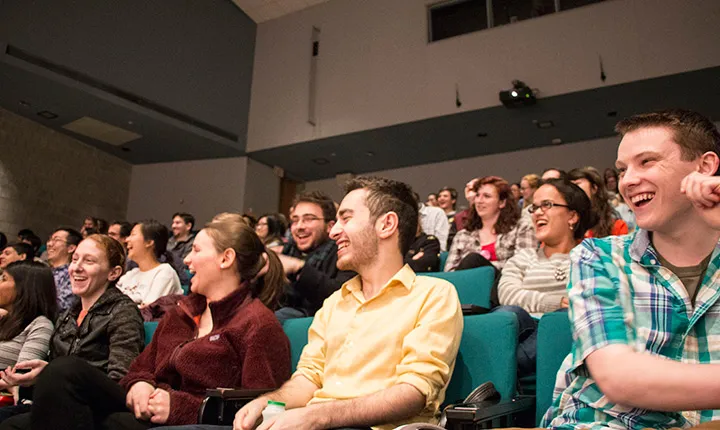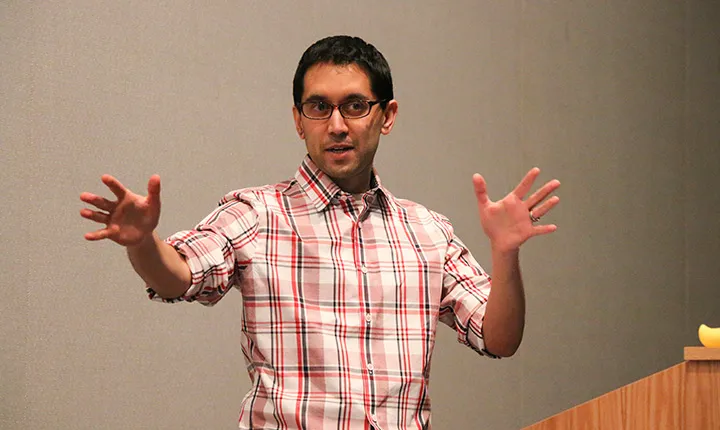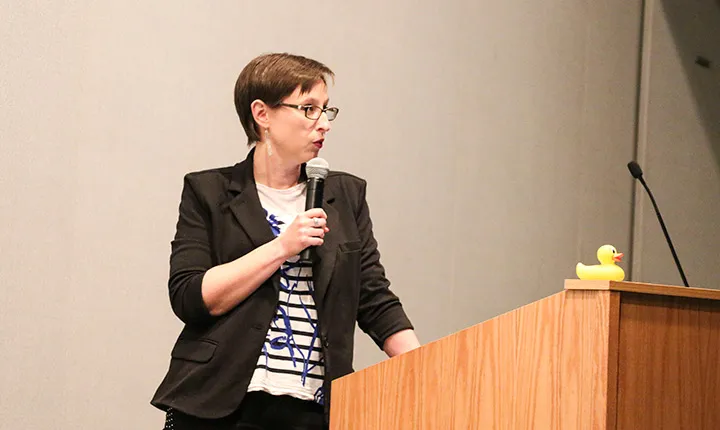Thanks to a compelling argument from Assistant Professor of Philosophy Krista Thomason, the humanities emerged victorious at the Amos J. Peaslee Debate Society 10th annual Bathtub Debate earlier this week.
Thomason, who received the most and loudest applause from the audience, walked away with the grand prize (a rubber ducky) and was declared the winner by moderator and Debate Society member Isaac Dulin ’16, an engineering and computer science major from Saint Peter, Minn.
In the annual tradition, Peaslee pits three academic divisions against each other in an imagined apocalyptic future in which only one division can survive the destruction of life as we know it. The event is known as the Bathtub Debate in memory of the 2007 topic, which involved three professors competing for the one and only spot in a bathtub traveling to the Antarctic for a conference with highly intelligent penguins hoping to retake planet Earth.
This year, Peaslee needed to look only one year into the future for its topic: one year after defeating Sen. Bernie Sanders in a general election, President Donald Trump moves forward with his promise to build a wall between Mexico and the United States. Surprised after Mexico decides not to pay the colossal price of the construction, Trump determines that money should be taken from federal education funding. Swarthmore, forced to give up two-thirds of its land and its endowment, can only afford to save one division.
Along with Thomason defending the humanities, Assistant Professor of Economics Syon Bhanot argued on behalf of the social sciences and Assistant Professor of Computer Science Ameet Soni spoke for the natural sciences.
Each professor gave a brief opening statement, defending his or her own division and humorously belittling the other two. Bhanot began by quoting obscure research papers from the natural sciences and indecipherable literary theory from the humanities. Commenting on existential angst induced by religion and philosophy, Bhanot argued, “I kind of don’t want to cry under my bed and wonder if I exist.” His primary argument in support of the social sciences: people “need solutions we already have; it’s just a matter of rolling them out. Making solutions accessible is the domain of the social sciences.”
Soni followed, claiming that the natural sciences can absorb all other fields; psychology would be a course entitled “The Scientific Method, If We Didn’t Care About Controls.” He added the natural sciences has experience teaching popular classes, and with only one division left, classes would be enormous. He finished by listing a few of the natural sciences’ social contributions, such as treatment for malaria and HIV/AIDS.
Thomason concluded her remarks by citing calls to cut funding from the liberal arts to support STEM fields, which require more money than any other field. Her central argument revolved around students of the humanities as subversive forces. Putting the situation into Star Wars terms, she explained, “We are the resistance; they are the First Order.” She added that the humanities produce agents of political change who serve as the conscience of the country, and that Swarthmore should be “a safe haven for political resistance.”
After the three opening statements, audience members posed “serious but preferably comical” questions, including how each division would integrate students from the former divisions into its own subjects. Soni argued that the Computer Science Department already does that, as about 70 percent of Swarthmore students will take a computer science class. Finally, each professor gave a brief closing statement, recapping central points and questioning which division houses the most and cutest dogs.
Following the victory, Thomason was pleased for the humanities division. “The natural sciences and social sciences fought hard,” she says, “but we were able to execute our plan and come away with the W. We think our record of excellence speaks for itself."
